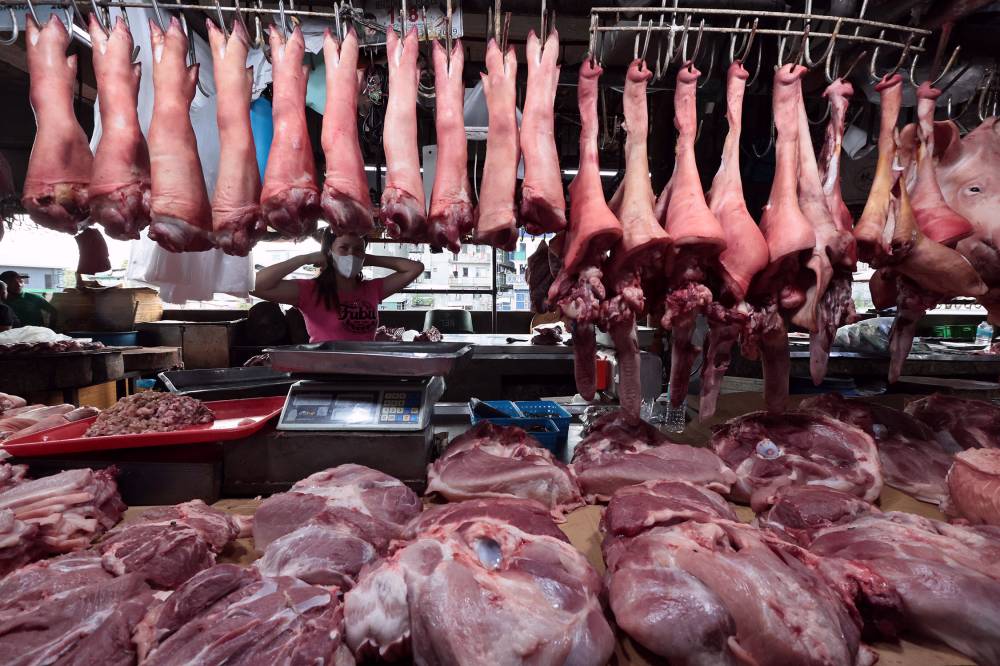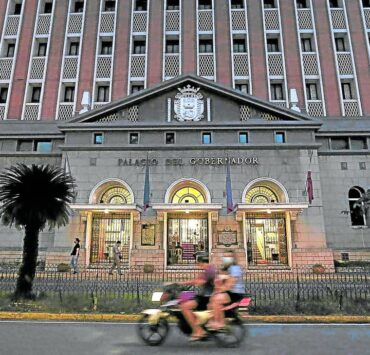Thai firm to supply PH with 100 live hogs daily

The Food Terminal Inc. (FTI) has partnered with the local entity of Thai firm Charoen Pokphand Foods PLC (CP Foods) on a pilot program that aims to drive down pork retail prices by ensuring a reliable supply.
Under the memorandum of agreement between FTI and Charoen Pokphand Foods (CPF) Philippines Corp., the latter will deliver 100 live hogs daily at discounted prices from April to June.
“These hogs will be sent directly to a slaughterhouse in Caloocan, where the distributor and viajeros (traders) will simply receive the live hogs directly rather than transporting them from various farms,” the Department of Agriculture (DA) said in a statement on Tuesday.
The slaughtered hogs will be processed for fresh pork carcasses and sold in various wet markets in the National Capital Region (NCR), Rizal and Cavite provinces.
“If this pilot [program] proves successful, we will extend it to other hog raisers, creating a broader solution to ensure pork remains affordably priced, with minimal shock to the industry,” FTI president and chief executive officer Joseph Rudolph Lo said.
Volume guarantee
“We needed a company that could guarantee the volume we need at the price we were looking at to achieve our goals,” he added.
Agriculture Secretary Francisco Tiu Laurel Jr. said the collaboration was a significant step toward modernizing the local pork industry.
“We need creative approaches like this deal between FTI and CP to modernize the pork industry’s supply chain, stabilize prices, and ensure food security,” Tiu Laurel said.
The FTI, a government-owned and controlled corporation under the DA, serves as the food processing and distribution hub of agricultural and fisheries products in strategic locations nationwide.
Headquartered in Bangkok, CP Foods operates a vertically integrated agro-industrial and food business, including swine, broiler, layer, duck, shrimp and fish. It is present in 17 countries, including the Philippines, and exports to over 30 countries on five continents.
Billion-peso investment
In November, the Board of Investments said that CPF Philippines infused P10.55 billion into the country to build 20 new breeding farm projects, becoming the first entity to receive a green lane certification for agricultural projects.
These breeding farms will rise in Nueva Ecija, Isabela, Tarlac, Palawan, Ilocos Norte, Ilocos Sur, South Cotabato, Pangasinan, Southern Leyte, Surigao del Norte and Negros Occidental.
“CPF will lease farms in these regions to breed parent stock pigs, producing thousands of weaned piglets each year. These piglets will then be transferred to Wean-Finish/Grow-out Farms in various locations until they reach market weight,” the BOI said.
The agreement signed by FTI and CP Foods is the DA’s latest attempt to curb rising retail prices of pork.
Earlier, it announced that effective March 10, the maximum suggested retail price (MSRP) for liempo (pork belly) will be P380 per kilogram and P350 a kilo for kasim (shoulder) and pigue (leg).
The DA also set an MSRP of P300 per kg for “sabit ulo” or fresh hog carcass.
A recent DA inspection at Mega Q Mart in Quezon City, however, showed that only 30 percent of the over 170 monitored stalls were compliant with the price caps.
“At the farm level, the price has declined from P250 per kilo. We’ve observed prices ranging from P235 to P240 per kilo. But the agreed price with industry players is P230 per kilo, so we must insist on that,” Tiu Laurel said.
He hinted at sanctions against noncompliant traders after the DA met with industry stakeholders to discuss the low compliance with pork MSRP and other related matters.
As of March 27, pork belly retailed between P380 and P450 per kg in Metro Manila markets, about six percent lower than P380 to P480 per kg on March 1, according to the DA’s price monitoring.

















